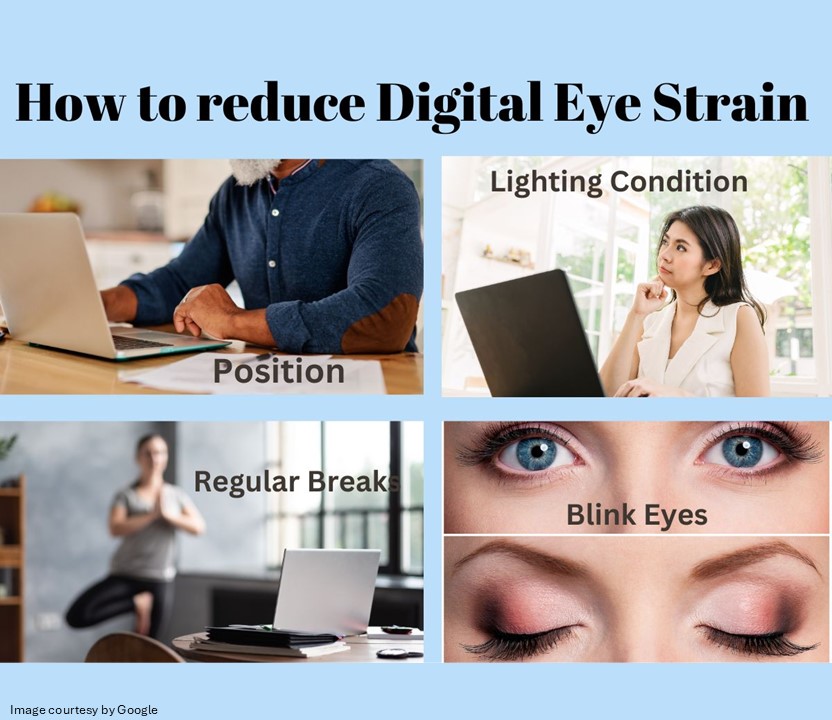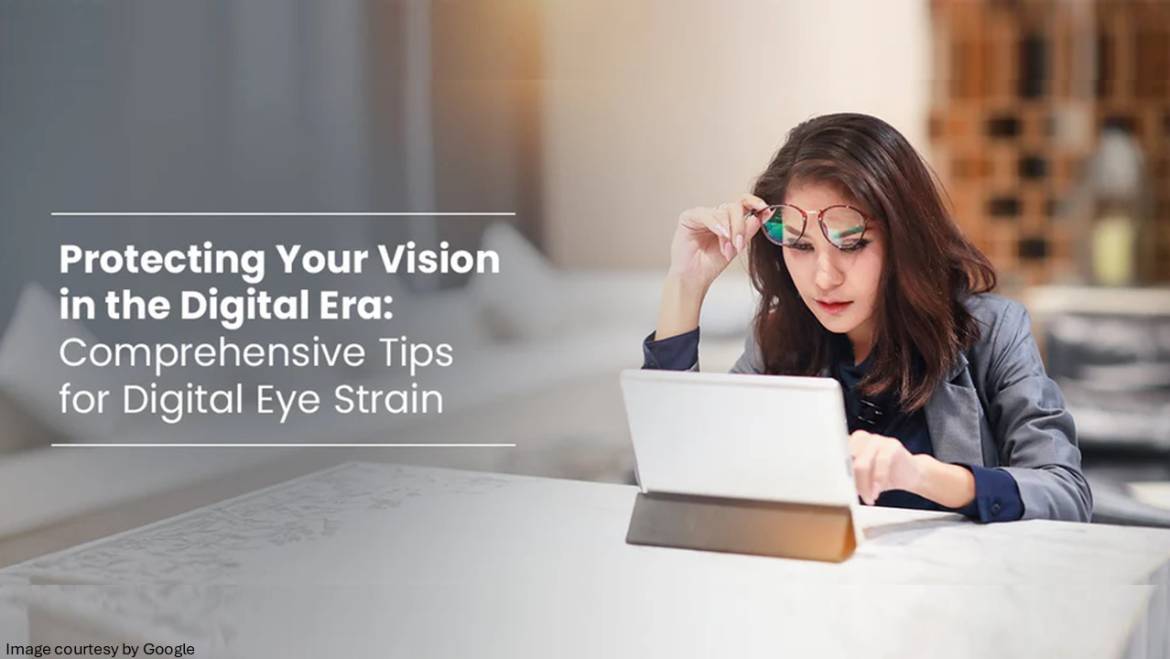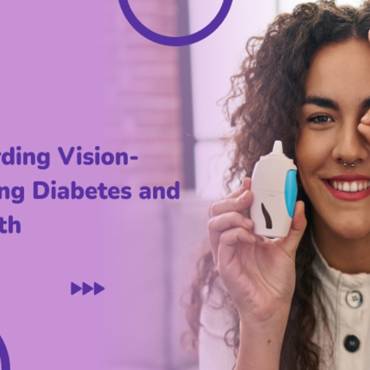The blue light has made our lives more digital today with smartphones, laptops, personal computers, and tablets, among others. With many of us spending hours in front of screens, it seems impossible to ignore the ill effects of digital eyestrain. With high technology, we often wonder if blue light can be harmful to our eyes, as many companies claim their products are eyesafe certified.
Avoiding screens is largely difficult in today’s world, but using them sensibly can help protect our vision. This blog offers some of the best tips to help you naturally relieve eye strain symptoms.
Is blue light bad for your eyes?
Digital eyestrain is a common issue often attributed to exposure to blue light or computer vision syndrome. Headaches, nausea, irritation, itching, redness, and loss of focus are common symptoms associated with digital eyestrain. Approximately 50%-75% of people who work in front of screens suffer from these symptoms. The bright blue light emitted by computer screens is a significant contributor to eye fatigue. However, the good news is that there are certain ways in which you can control the condition up to a manageable condition, including:
-
- Break
No, we are not asking you to break your screen; rather, it refers to taking frequent breaks while working on a computer or any other screen to avoid neck, back, and shoulder pain. These are called ‘mini breaks’ and should be included to increase your overall productivity and protect you from health hazards. It is the easiest way to naturally avoid eyestrain. While taking a break, you can stretch your legs, back, and neck; this will help relieve the tension created by continuous sitting in front of the screen and give your eyes a rest simultaneously.
-
- Adjust your screen’s display
It is one of the simplest and most logical methods to prevent digital eyestrain while working on a screen for extended periods. Do the following adjustments to enjoy strain-free screen time:
-
-
- Adjust the brightness of the screen according to the brightness of the surroundings. It should not be too dark or too bright.
- The text font, size, and colour should also be adjusted according to comfort. Typically, a black text against a white background is considered the most comfortable combination for the eyes.
- Adjust the color temperature of the display to something of longer wavelength hues like red and orange instead of blue light, which has the highest colour temperature.
-
-
- Blink your eyes frequently
A study reveals that individuals who spend long hours in front of screens tend to blink less frequently. Rather, they blink only one-third as many times as they would normally blink. Out of the few blinks, many of the blinks were just partial closure of the eyes.
As a result, the moisture in the eyes evaporated more easily, and the eyes dried up more frequently due to prolonged periods of non-blinking. To retain eye moisture, try blinking more frequently.

-
- Consider wearing computer glasses
Computer glasses are of great help for those who already wear glasses or contact lenses. Even people with normal eyesight can also wear customized screen glasses to protect their eyes and avoid extra strain. It is one of the best ways to avoid unwanted eyestrain and minimize eye pressure.
-
- Exercise your eyes
Another way to relieve eyestrain is to avoid eye fatigue. To achieve this, you can follow simple eye exercises to maintain eye focus.
-
-
- Follow the 20-20 rule, in which you have to look away from the screen for 20 seconds after every 20 minutes. This rule will remind you to look away from the screen for a while.
- Another exercise is to look at a distant object for 20 seconds, and then gaze at something very close for 15 seconds and then look back again at the distant object. It is a very good exercise for the eyes.
-
-
- Include vitamins and minerals
The last tip for naturally relieving eye strain caused by digital work is to maintain a rich and healthy diet rich in nutrients essential for eye health. Include various vitamins and minerals. It is essential to incorporate various antioxidants and beneficial ingredients to support eye health. The vitamins good for the eyes are vitamin A, C, and E, as well as a vitamin complex. Zinc is a beneficial mineral for the eyes; hence, food items such as eggs rich in zinc should be included in the diet as well.
Conclusion:
Eyes are a vital part of our body, and it is our duty to take care of our overall health, including eye health. Excessive digital eyestrain can cause permanent damage to the eyes. To avoid any eye pressure problems while spending long hours in front of a screen, follow the tips given above to relieve the strain naturally. A regular eye care checkup is also recommended to maintain eye health clinically.
Also Read: 8 Simple Tips For Healthy Eyes



